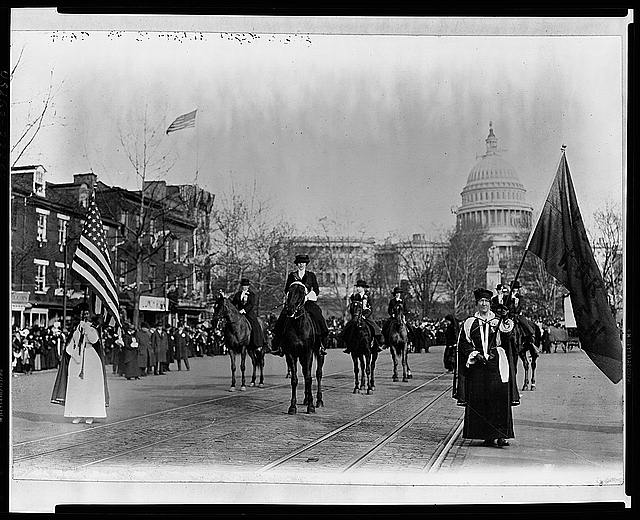Women’s Equality Day is August 26th. This year, it commemorates the 2020 centennial of the 1920 adoption of the Nineteenth Amendment to the United States Constitution, which prohibits the states and the federal government from denying the right to vote to citizens of the United States on the basis of sex. Proposed on June 4, 1919, it took more than a year for the 48 states to ratify the 19th Amendment, which became law when the Secretary of State announced the completion of the ratification process on August 26, 1920, officially giving women in the US the right to vote.
What we consider to be basic rights today—such as women’s right to vote and own property—are the result of the hard work and conviction of trailblazers such as Susan B. Anthony, Elizabeth Cady Stanton, Carrie Chapman Catt, Frederick Douglass, Lucretia Mott, Alice Paul, and Sojourner Truth. Women’s Equality Day celebrates the achievements of women’s rights activists and reminds us of the unique daily struggles that women face. Representative Bella S. Abzug (D-NY) called on Congress to commemorate the date the amendment was passed, and in 1971, Women’s Equality Day was born.
Check out the National Archives Online Exhibit on the 19th Amendment where you can see photos of suffragists and also the House Joint Resolution 1 proposing the 19th amendment to the states.
The National Archives Museum online exhibit “Rightfully Hers: American Women and the Vote” highlights the relentless struggle of diverse activists throughout US history to secure voting rights for all American women.
Use the ReadWriteThink lessons Vote For Me! Developing, Writing, and Evaluating Persuasive Speeches and Voting! What’s It All About? to explore voting with younger students.
The 19th Amendment was a major achievement, but it was not inclusive. It did not allow minority women to vote. It was not until 1965 that Black and brown women were granted the right to vote under the historic Voting Rights Act, which was put into place after years of protest as part of civil rights movements of the 1950s and 1960s.
We should not forget how far we’ve come in the last 100 years, but we should also realize how far we still have to go.
Curious about the NCTE and Library of Congress connection? Through a grant announced recently by NCTE Executive Director Emily Kirkpatrick, NCTE is engaged in new ongoing work with the Library of Congress, and “will connect the ELA community with the Library of Congress to expand the use of primary sources in teaching.” Stay tuned for more throughout the year!
It is the policy of NCTE in all publications, including the Literacy & NCTE blog, to provide a forum for the open discussion of ideas concerning the content and the teaching of English and the language arts. Publicity accorded to any particular point of view does not imply endorsement by the Executive Committee, the Board of Directors, or the membership at large, except in announcements of policy, where such endorsement is clearly specified.

